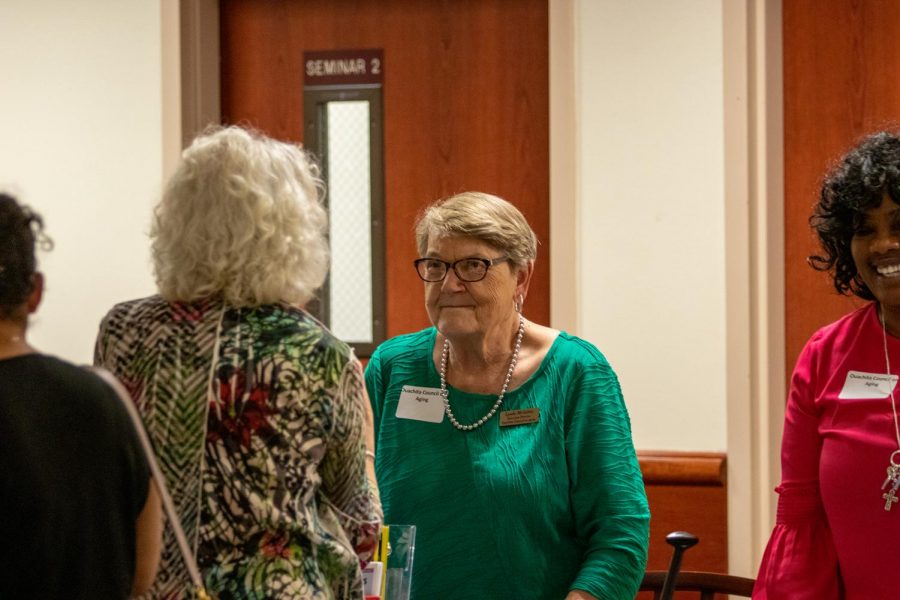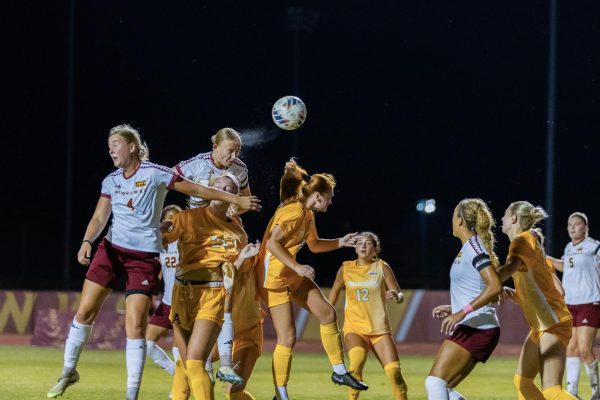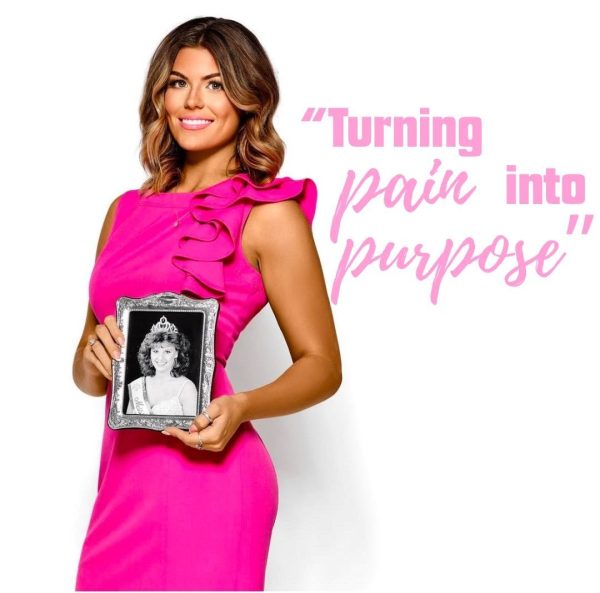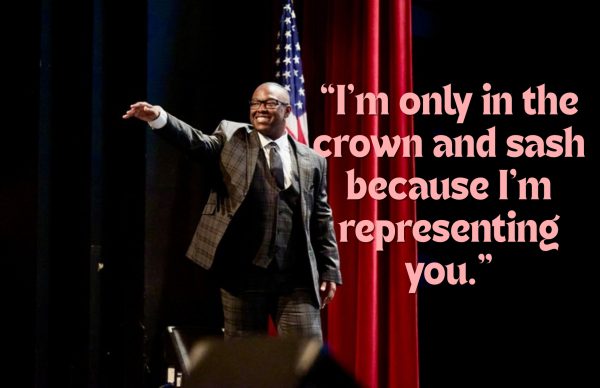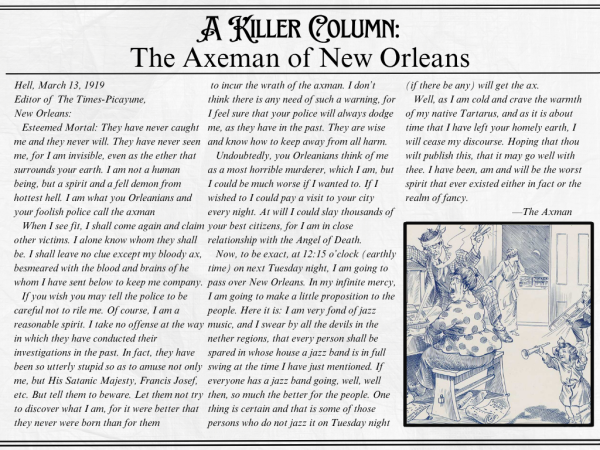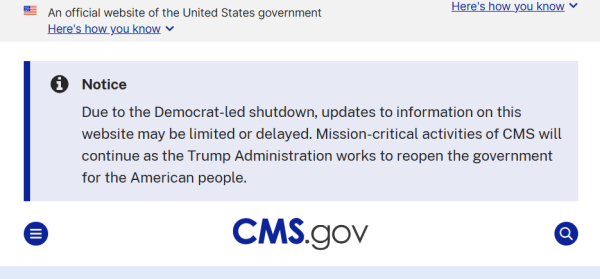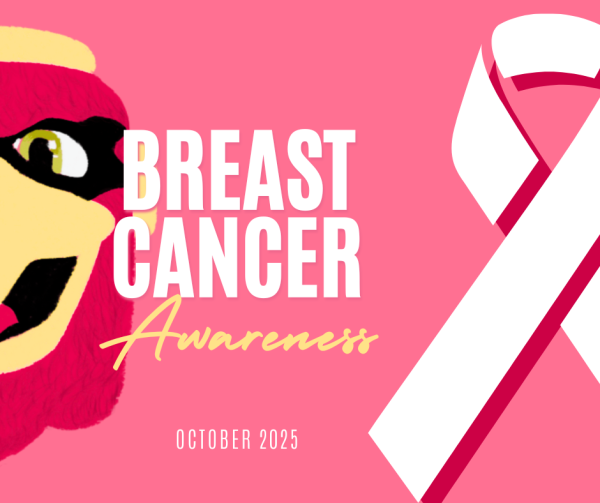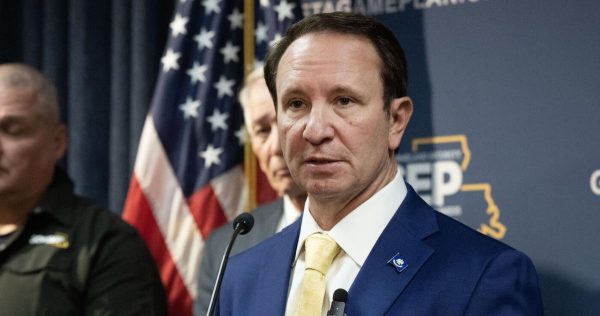ULM hosts disability conference
When Jessica Jackson was younger, she would volunteer with her god mother at a nursing home. She knew from that moment she loved to help older adults. After taking a gerontology class in college, she decided that’s what she wanted to do with her life. And that’s how she got started in the gerontology program at ULM.
But the gerontology program not only works with older adults, but also with those who have disabilities. The gerontology program hosted a conference on disability advocacy Oct. 1, on the seventh floor of the library to make others aware of all disabilities.
Dr. Anita Sharma, a professor of gerontology, created the vision of a conference like this in her mind 10 years ago, but was never able to make it happen.
“I just didn’t have the resources, the money and the people to actually implement it and carry it out,” Sharma said. “Then I find all of those, the money, found a good niche in the community and I found a lot of community support for the gerontology program.”
At this event, 16 booths were set up to explain different kinds of disabilities, according to Sharma. Some of these disabilities include visual and hearing impairments, developmental disorders and disabilities associated with older adults.
One booth, Northeast Delta Human Services Authority, was there specifically for those with developmental disorders.
Jimmy Powell, an employee for NDHSA, said NDHSA helps families purchase things they can’t afford like ramps, wheelchairs or workers in their home. NDHSA is the office you to get qualified for disability services and can also help those with disabilities find jobs.
One misconception Powell said many people have is they think those with disabilities aren’t able to work.
“Each individual person has different challenges like people worried about behaviors, or the cognitive level for people to understand a job task,” Powell said, “Not everybody with a developmental disability is intellectually impaired.”
According to Bureau of Labor Statistics, about 20 percent of people with disabilities are in the workforce. Powell and Sharma both agreed that it was clear that each person is valuable and they can work just like everyone else.
“We need to focus on abilities rather than disabilities of people because all of us have disabilities,” Sharma said. “The disability should not define a person because a person has strengths as any other person.”
Jacy Barron, a gerontology graduate student, said that we often underestimate the strengths of those with disabilities.
“Old people and people with disabilities get marginalized and left out of the mainstream,” Barron said. “People see them as less productive people than others. People don’t see the beauty and attraction among old people and people with disabilities.”
If you are interested in working with those who have disabilities, there are multiple types of jobs that all majors can find based off of gerontology like long-term care administrators, counselors, marketers, health care professionals, nutrition directors and elder law attorneys.
Jackson, a gerontology graduate student, hopes that one day she can work with older adults because she wants to help them out as much as she can.


